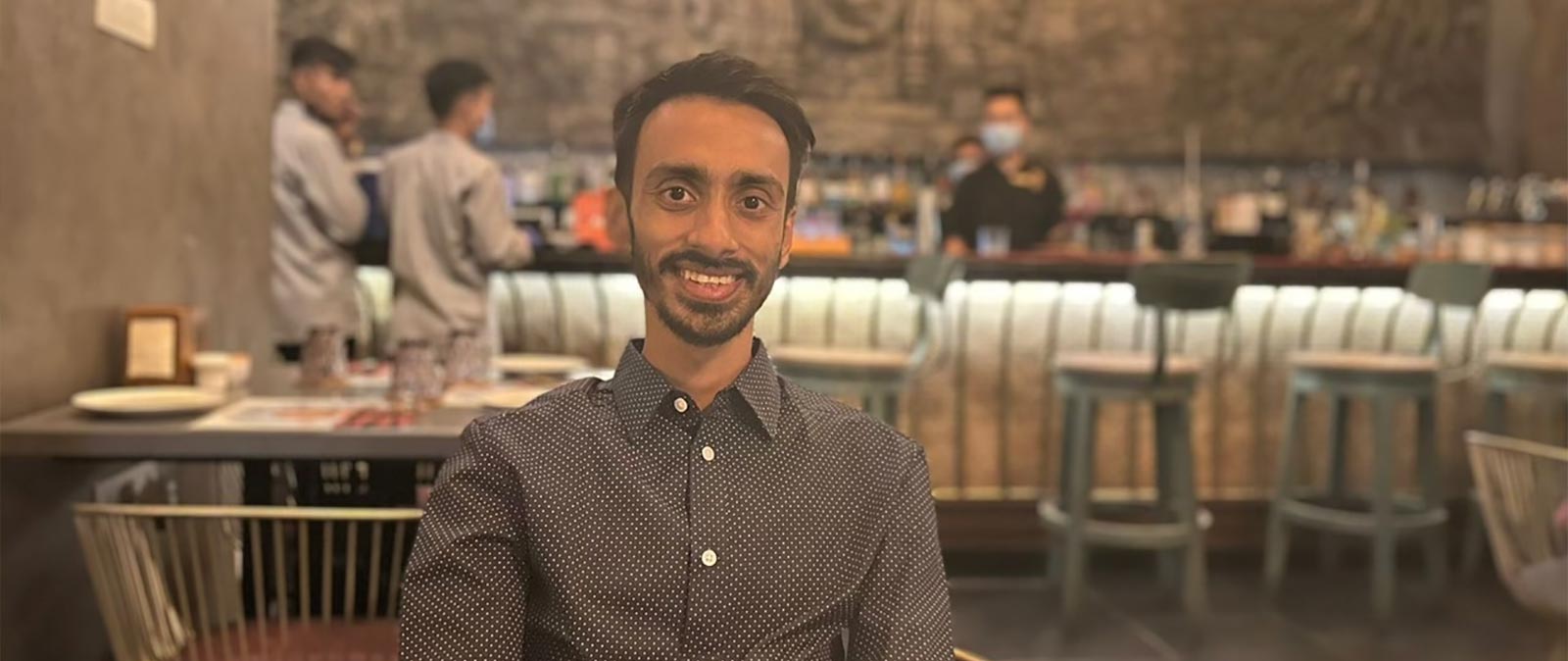Varun Padi has gained a wider scope of experience in a short span of time. After studying BBA, he learned at an early stage that entrepreneurship is not to be viewed or lived through a single lens. It teaches you about the technical nuances of finance, marketing, and so on. However, what this field also teaches you is the integrated fashion of interdisciplinary approaches, involving psychology, negotiation, product thinking, and design. Varun's BBA at FLAME served to carve his career in the years that followed.
After earning his degree, Varun interned at the Nadathur S. Raghavan Centre for Entrepreneurial Learning, IIM Bangalore (NSRCEL). His internship was like a seed in the hatching, for it was a time when India was still getting used to the ecosystem of startups. In the process, Varun had the opportunity to catch the pulse of a startup from scratch and see how it differentiated among small, medium, and large companies. He was blessed with the opportunity to meet several founders, members of the VC community, and tenured professors in the field of entrepreneurship research. It pretty much set the foundation that pillared his career prospects.
Soon after Varun’s internship concluded, he found himself stepping into work life at Excubator. His role here was to help entrepreneurs sharpen their ideas and constantly iterate on them till a sensible and practical Product-Market-Fit (PMF) was achieved. His Excubator experience, when combined with his undergraduate (UG) curriculum, was inextricably linked and purely a function of hindsight. The goal here was to expand the footprint already created at NSRCEL, which was a one-stop shop to help grow startup businesses.
He goes on to further add that starting up any business is multi-faceted, including the processes of ideation, hiring talent, innovating on groundbreaking technology, or being able to sell. These were abilities that the UG curriculum taught with full vigour.
Every course in this curriculum was a learning curve that proved to be a stepping stone in his career that brought all of these elements together:
-
The Critical Theory course taught him critical thinking, which is absolutely essential to any ideation process.
-
The Design Thinking course taught him to deeply think about products concerning any industry.
-
Psychology and Sociology taught him the cultural nuances of hiring, especially as it relates to how a candidate would fit into an organisation over and above technical skills.
-
Economics helped him understand how economic cycles work, especially when a startup tries to raise funds.
Varun also came across the most profound lesson that is essential in the journey of an entrepreneur. As he studied at The University of New South Wales (UNSW), Sydney, he found how entrepreneurship and storytelling are two sides of the same coin. Entrepreneurs need to share their stories with every stakeholder. This means their stories will travel from the candidate they want to hire to the customer they want to close to the investor for their company. While storytelling comes in many shapes and sizes, Varun was particularly fascinated with how numbers could tell stories. These numbers that present the facts were bound to have a large impact. As a result, he believed that finance was the best instrument to tell stories through numbers. And this is what drove Varun to take up Finance at UNSW, where he specialised in Mergers & Acquisitions and Venture Capital.
Varun entered UNSW at a later age than his classmates. It worked in his favour as he was exposed to students from diverse backgrounds and from a multitude of countries. This step provided him with an interesting learning experience wherein everyone was united by their love for numbers, which was more or less a universal language.
Varun exemplifies the popular belief that "learning knows no age". His involvement in complex projects has increased his knowledge several notches. He worked at the Indian Institute of Management, Calcutta (IIMC) for the Advanced Programme in FinTech and Financial Blockchain. It was his realisation that blockchain is a once-in-a-generation technology with a significant impact on any industry. Therefore, at IIMC, he concentrated on learning about the underlying technology and the applications in the FinTech arena. This focus led him to work on two group-based projects related to the stock market and the insurance domain.
The stock market project was taken up with the aim of reducing the settlement and clearance time frame of the equity markets from T+2 to T+0 using blockchain, which in effect decentralises the stock market.
At the same time, the insurance project was created with the goal of reducing the incidence of fraud in claims. Today, most insurers invest in data that is gathered from public and private companies. This helps them to accurately predict and analyse claims. The blockchain solution with a distributed ledger can potentially help insurers collaborate and identify suspicious behaviour across the ecosystem.
Varun goes on to be associated with Riskcovry for over two years. His role was to manage the corporate development function, where he worked on fundraising, M&A, and investor relations. It was nothing less than a roller coaster ride where he worked through two funding rounds that taught him about context switching. His abilities were further sharpened as he dived deeper into minute details while also learning the implications of the overall strategy.
Varun leaves us with this interesting food for thought that one must be more cautious when things are seemingly going well compared to when the chips are down.


